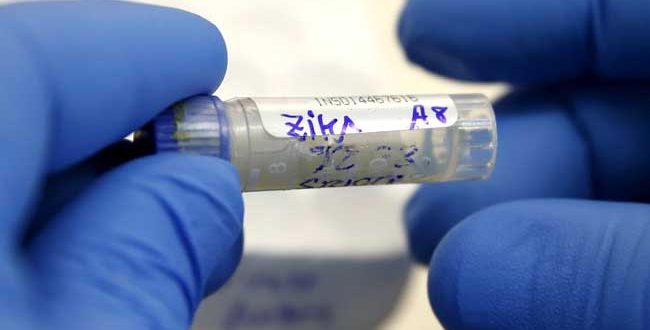Urine is more accurate than blood in testing for the mosquito-borne Zika virus, a finding that may allow patients with the disease to be more easily diagnosed, the Centers for Disease Control and Prevention said Tuesday.
CDC has updated its interim diagnostic testing guidance for Zika virus to recommend real-time reverse transcription-polymerase chain reaction (rRT-PCR) testing of urine specimens collected within 14 days of illness onset and serum along with urine specimens obtained less than 7 days after illness onset.
The updated recommendations are available in an early release of Morbidity and Mortality Report published May 10, 2016.
The preferred test for Zika virus infection is rRT-PCR because it is quick and highly specific, but Zika virus RNA is largely undetectable in serum after the first 7 days of illness, according to a second report in the journal. The data suggest that Zika virus RNA is detectable in urine for at least 2 weeks after symptom onset, write Andrea M. Bingham, PhD, and colleagues from the Florida Department of Public Health.
The authors report that the Florida Department of Health Bureau of Public Health Laboratories has performed Zika virus testing on specimens from 913 people who met criteria for testing. Of those, 91 cases were confirmed or deemed probable. Previous data demonstrate detection of the virus by rRT-PCR of urine, saliva, and semen; therefore, the Florida Department of Health obtained multiple specimen types from people with suspected acute disease.
Researchers then evaluated test results by specimen type and date of collection related to illness onset to establish “the most sensitive and efficient testing algorithm for acute Zika virus disease,” Dr Bingham and colleagues write.
Overall, urine specimens from 65 of 70 cases (93%) obtained within 20 days after symptom onset were rRT-PCR-positive. Of the 55 cases with specimens obtained on the same date and within 5 days of illness onset, urine was rRT-PCR-positive in 95%, but serum rRT-PCR was positive in only 56%.
Eighty-two percent (9/11) of urine specimens obtained more than 5 days after illness onset were rRT-PCR-positive, but none of the serum specimens were positive.
In no cases was saliva the only rRT-PCR-positive sample type.
“[The] testing results suggest urine might be the preferred sample type to diagnose acute Zika virus infections,” the authors write.
The updated guidance from the CDC recommends:
Perform Zika virus rRT-PCR on urine specimens obtained ≤ 14 days after illness onset.
Continue to perform Zika virus rRT-PCR on serum specimens obtained < 7 days after illness onset in conjunction with urine testing.
A positive Zika rRT-PCR result demonstrates current Zika virus infection.
Because viremia decreases over time and recorded dates of illness onset may not be accurate, a negative rRT-PCR does not rule out virus infection, and immunoglobulin M antibody testing should be performed.
The only diagnostic test currently authorized by the US Food and Drug Administration for Zika virus testing of urine is the CDC Trioplex rRT-PCR assay. “Other laboratory-developed tests will need in-house validations to adequately characterize the performance of the assay and meet Clinical Laboratory Improvement Amendments,” according to the updated guidance.
The sensitivity and utility of Zika virus rRT-PCR on urine specimens obtained ≥ 14 days after onset of illness are unclear. CDC recommendations for testing of serum and other clinical specimens are unchanged at present; the CDC will continue to review and update its recommendations as new data become available.
Agencies/Canadajournal
 Canada Journal – News of the World Articles and videos to bring you the biggest Canadian news stories from across the country every day
Canada Journal – News of the World Articles and videos to bring you the biggest Canadian news stories from across the country every day



